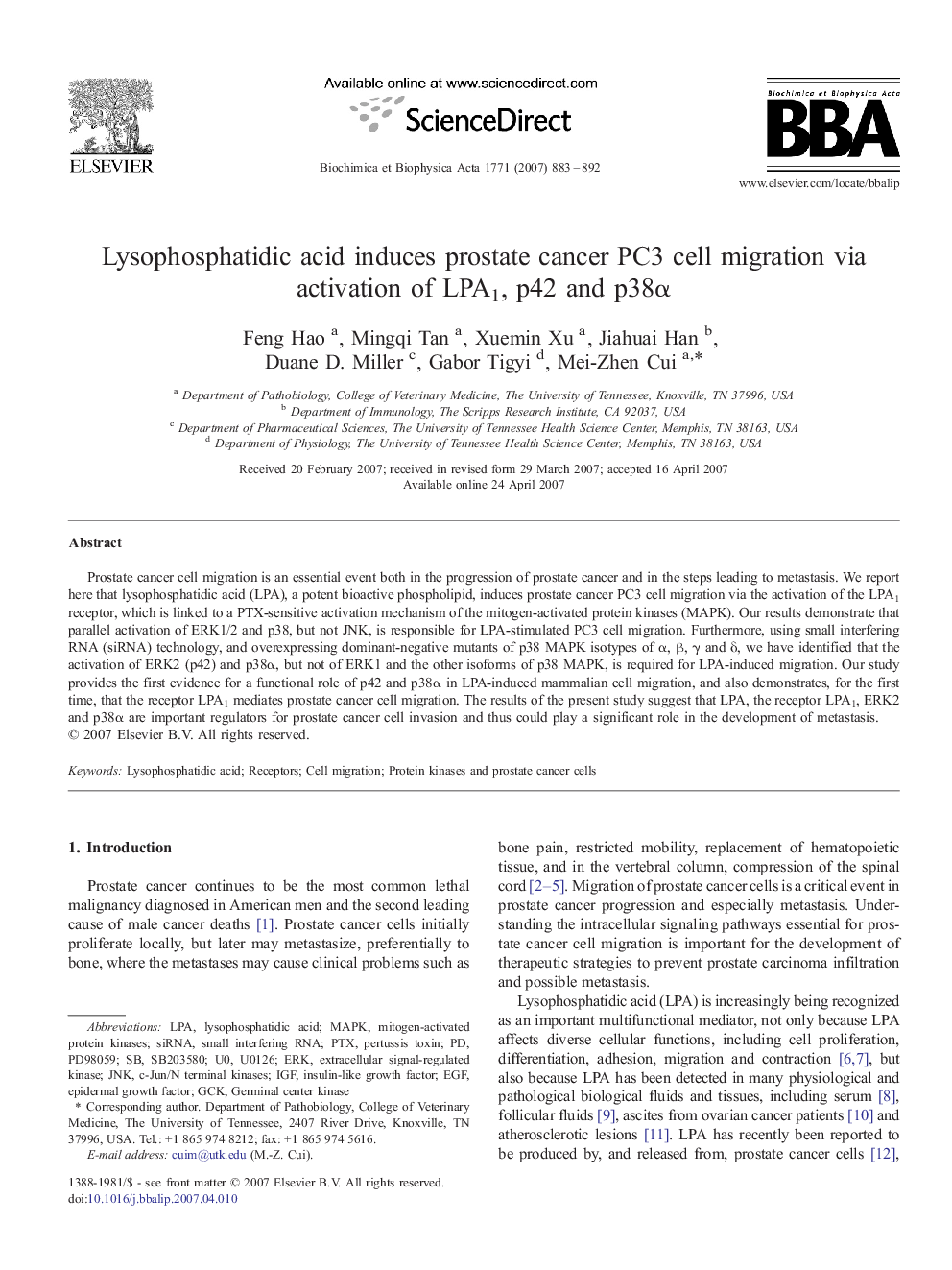| Article ID | Journal | Published Year | Pages | File Type |
|---|---|---|---|---|
| 8303500 | Biochimica et Biophysica Acta (BBA) - Molecular and Cell Biology of Lipids | 2007 | 10 Pages |
Abstract
Prostate cancer cell migration is an essential event both in the progression of prostate cancer and in the steps leading to metastasis. We report here that lysophosphatidic acid (LPA), a potent bioactive phospholipid, induces prostate cancer PC3 cell migration via the activation of the LPA1 receptor, which is linked to a PTX-sensitive activation mechanism of the mitogen-activated protein kinases (MAPK). Our results demonstrate that parallel activation of ERK1/2 and p38, but not JNK, is responsible for LPA-stimulated PC3 cell migration. Furthermore, using small interfering RNA (siRNA) technology, and overexpressing dominant-negative mutants of p38 MAPK isotypes of α, β, γ and δ, we have identified that the activation of ERK2 (p42) and p38α, but not of ERK1 and the other isoforms of p38 MAPK, is required for LPA-induced migration. Our study provides the first evidence for a functional role of p42 and p38α in LPA-induced mammalian cell migration, and also demonstrates, for the first time, that the receptor LPA1 mediates prostate cancer cell migration. The results of the present study suggest that LPA, the receptor LPA1, ERK2 and p38α are important regulators for prostate cancer cell invasion and thus could play a significant role in the development of metastasis.
Keywords
Related Topics
Life Sciences
Biochemistry, Genetics and Molecular Biology
Biochemistry
Authors
Feng Hao, Mingqi Tan, Xuemin Xu, Jiahuai Han, Duane D. Miller, Gabor Tigyi, Mei-Zhen Cui,
